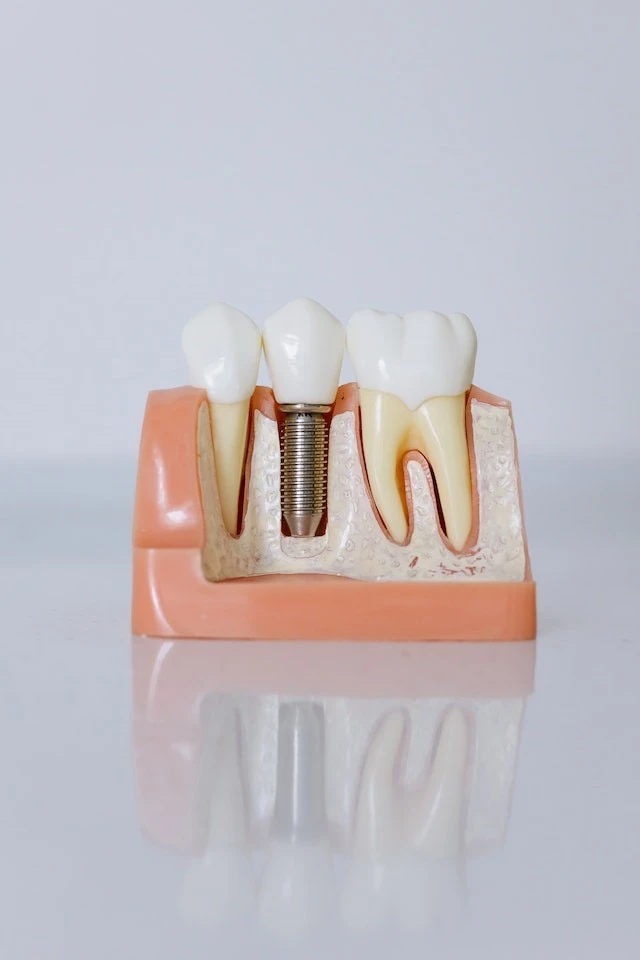A favored choice for tooth loss among dental professionals is dental implants for their natural-looking presentation and sense of permanence. According to the American Academy of Implant Dentistry, millions of people undergo the restorative process within the US, growing exponentially each year.
Clients prefer implants based on the low maintenance compared to other artificial teeth and the exceptional durability. To ensure a successful implant, it’s critical to use the services of an experienced dental provider with this procedure as one of their specialties.
You’ll find Smiles by Hanna in Gilbert, AZ a reputable example. Clinics like these will offer simple instructions on caring for the new artificial teeth, so they last for the long term. Many people are under the misconception that care is less extensive than natural teeth.
In fact, you need to be as diligent with implants as you would with a standard oral hygiene regimen. Let’s look at the care and keeping of these appliances more in-depth to become more informed so your implants endure a long lifespan.
Tips on Caring for Dental Implants to Ensure a Long Lifespan
Dental implants usually consist of a titanium material or ceramic porcelain, each of which is incredibly durable with minimal likelihood of decay or breakage. That doesn’t mean the appliances don’t require the standard oral hygiene practices for natural teeth.
Neglect or poor maintenance, such as harsh or abrasive products, can cause failure by “etching away at the crown or weakening the base.” While these artificial teeth are incapable of cavities, your gums are still prone to disease.
When untreated, this can lead to a bacterial infection within the tissues, which can turn into “periodontitis.” Results of this can include implant failure, least of all. Optimum care is critical for long-lasting implants and overall oral health.
Find out the fundamentals of dental implants at https://www.fda.gov/medical-devices/dental-devices/dental-implants-what-you-should-know and follow these tips for adequate oral hygiene.
Brushing regularly
In the same way, natural teeth need brushing regularly; dental implants require preventive care to avoid damage or failure. Brushing involves using the right approach, including reaching all the hard-to-reach nooks and crannies. You also want to brush gently to prevent post-exposure.
The recommendation is to brush twice daily, once when waking in the morning and before sleeping at night.
A soft-bristle toothbrush is the best
Whether you’re brushing your natural teeth or implants, stiff bristles are too harsh for the enamel. A soft bristle toothbrush is recommended to preserve the surface and improve longevity. Both electric and manual toothbrushes are okay if you use gentle pressure.
Brushing natural or artificial teeth hard is unnecessary; it won’t give a different result than brushing gently.
Flossing is necessary
Flossing at least once each day is recommended by dental providers when artificial teeth are implanted. Flossing should be done before brushing to loosen the plaque and food particles between the teeth, and then toothpaste consisting of fluoride can be used to help remove the “debris.”
If flossing proves challenging for you, water flossers can be used, but trying to use the traditional floss is ideal and recommended.
An approved toothpaste
When searching for the best toothpaste, ensure that it is approved by the American Dental Association – ADA. These products will be less likely to cause damage, having no abrasives to etch the crown or the surface level of natural teeth, or enamel.
With abrasives, you won’t notice immediate damage, but over time, teeth grow weak, leaving them prone to breaking and chips. Whitening products are noted to be more damaging to tooth surfaces than other toothpastes.
Healthy lifestyle for healthy implants
With a few lifestyle changes, you’ll see an extended lifespan for your dental implants; these encourage healthy oral hygiene. Go here for details on how long dental implants last.
- Junk food/hard foods: Products like these are poor choices for healthy teeth and gums. Sugary or difficulty-to-chew foods can create an accumulation of plaque around artificial teeth. These foods should be avoided:A. Dried fruit
B. Hard candies
C. Caramel
D. Ice
E. Steak
F. Hard taco shells
G. Potato chips
H. Bread crust
I. Apples - Alcohol: Most alcoholic beverages have a lot of sugar, promoting decay with natural teeth. In the same way, it can damage artificial teeth, and when consumption is regular, longevity could be affected. Following dental surgeries, alcohol is prohibited as it will slow healing and encourage plaque accumulation- wait six months after implants before taking a drink.
- Smoking: Overall, oral health can suffer with the potential for developing cancer. In addition, smoking can damage natural teeth and slow healing after dental implants as the gums become weakened around the new teeth, not to mention the staining it causes.
Final Thought
The procedure for dental implants can be intricate, but caring for them doesn’t have to be complicated; it’s virtually the same as oral hygiene for natural teeth. Adequate maintenance can lead to its health, durability, and an extended life span.





